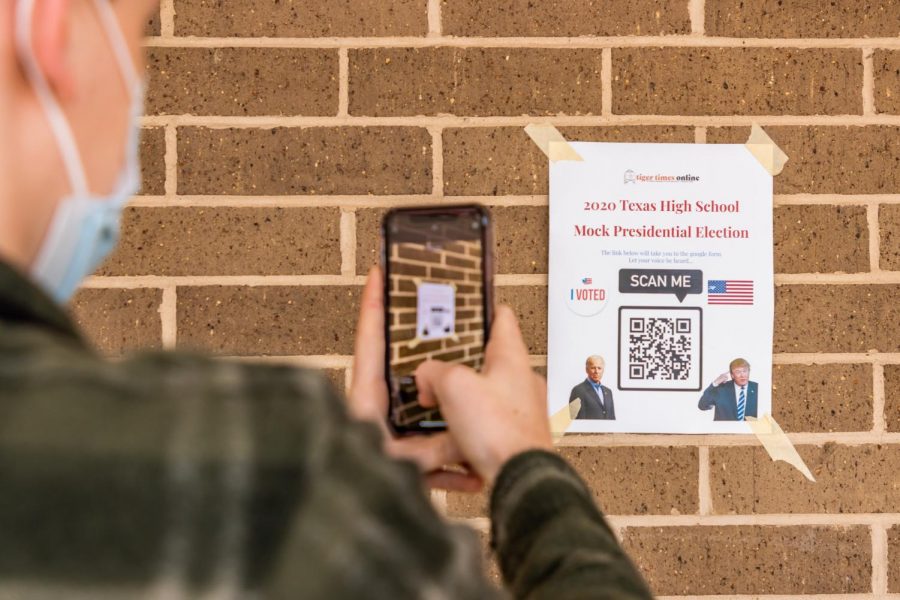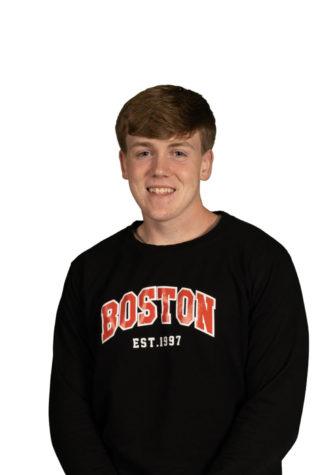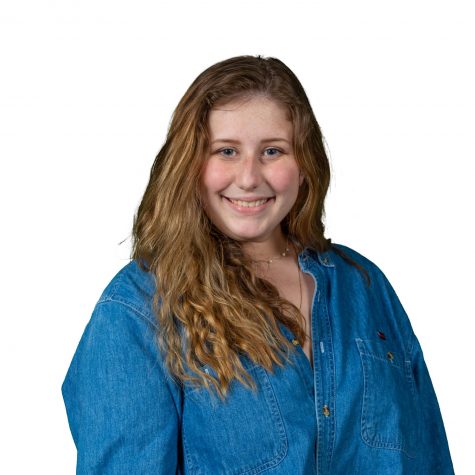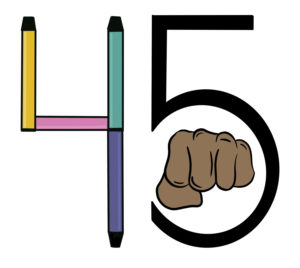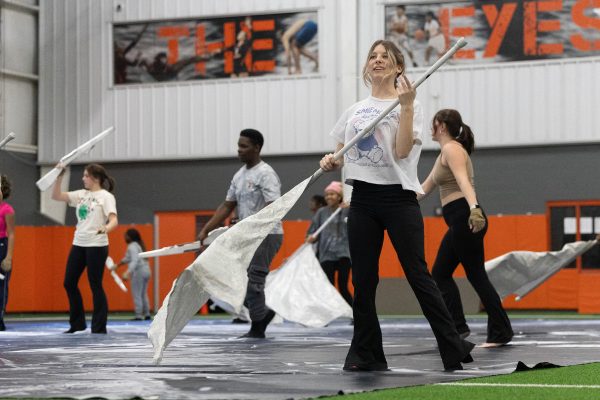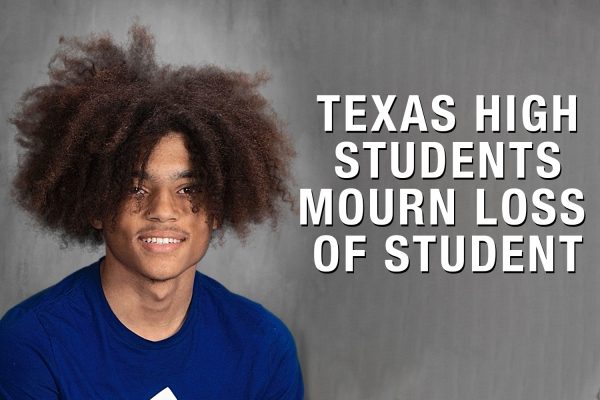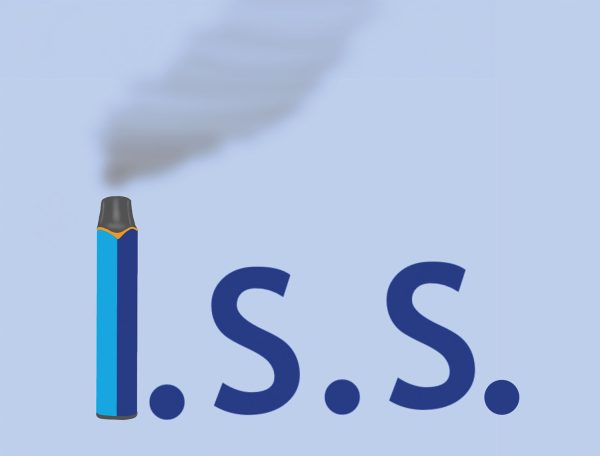Make your voice heard
Mock Election organized at Texas High School
A Texas High student participates in the mock election. Flyers were posted around campus Oct. 29.
October 29, 2020
Trump. Biden. Maybe neither. Through a mock election, one of our nation’s most divisive debates is to be answered by the diverse student population of Texas High School. Organized as a joint effort between the Tiger Times Newspaper and THS Political Society, the survey will imitate the ballots voters will receive on Election Day.
Not a necessarily new idea, mock elections have been a tradition at Texas High for many years. In 2016, while the polls were close, Hillary Clinton received the largest percentage of votes.
“The mock election is a tradition at Texas High,” social studies teacher Lance Kyles said. “It’s an important way for kids to learn to participate in the political process before they’re voting age.”
This mock election will give students the opportunity to voice their opinions and get an overview of their classmate’s stances as well. Results will be posted on @thsstudentmedia at the end of day.
To advertise the election survey, fliers will be posted throughout the school with a QR code leading to the form. The link to the form will open on Oct. 29 to give students a short voting period in which they may cast their ballots.
By the nature of an election, every precaution must be taken to ensure the results are fair and polls reach every population. To accomplish this, social studies teachers will be encouraged to present the graphic including the QR code in class on Nov. 2 and 3. All students are required to be in some form of social studies class, so the advertisement of the election by these teachers will target students from all backgrounds.
The fliers that will be posted are linked here, and the actual election survey is linked here.
Not just a simple poll, the form will include optional questions to get a sense of voters’ motivation. They will question what issues ultimately decided their choice, meaning voices will not only be heard, but defended.
“It’s important [the form] asks people why they choose their candidate,” Managing Editor Logan Diggs said. “So many issues can affect their choice.”


